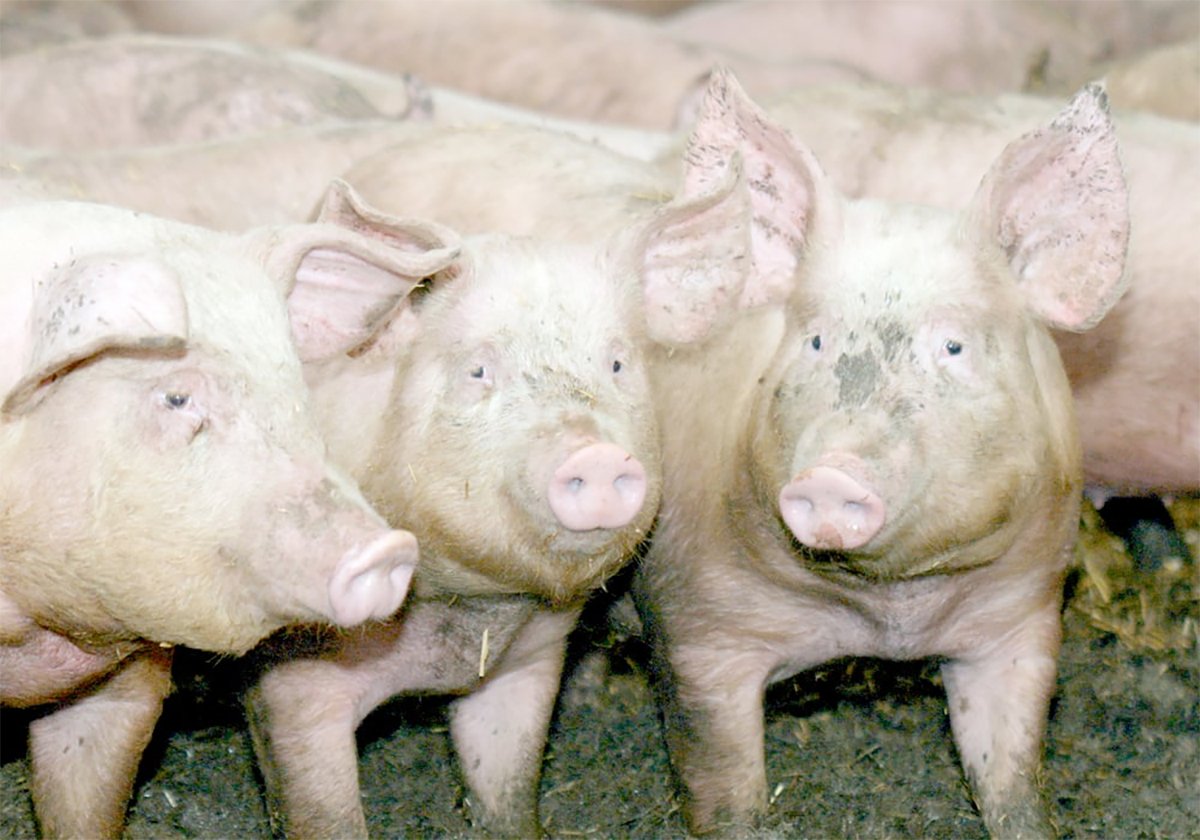When she stepped up to the microphone at the Manitoba Beef Producers annual meeting in Brandon Nov. 5, it was evident that Gaylene Dutchyshen was irritated and disappointed.
In a wavering voice, Dutchyshen, a cattle producer from Gilbert Plains, Man., said she couldn’t believe that 24 Manitoba farmers could shoot down an opportunity to build the province’s cattle industry.
The move would also slam the door on a federally inspected cattle slaughter plant in Winnipeg, she said.
Just moments before Dutchyshen spoke, members of the Manitoba Beef Producers (MBP) voted to eliminate the $2 check-off fee that supports the Manitoba Cattle Enhancement Council (MCEC), an agency created in 2006 to expand cattle processing in the province.
Read Also

The Western Producer Livestock Report – October 2, 2025
Western Producer Livestock Report for October 2, 2025. See U.S. & Canadian hog prices, Canadian bison & lamb market data and sale insight.
MBP members voted 24-21 to terminate the $2 MCEC check off, after a 30 minute, emotionally charged debate.
Don Winnicky, a MBP board member and producer from southeastern Manitoba, was the first to speak on the resolution. For him, it’s a matter of results.
“I’m tired of paying this $2 tax on my cows and there’s absolutely nothing to show for it in Winnipeg.”
In 2009, MCEC announced plans to retrofit a Maple Leaf Foods hog plant in Winnipeg and build Keystone Processors, a 500 head per day cattle slaughter plant that would target the emerging market for halal and kosher beef.
MCEC invested $7.5 million in Keystone Processors and construction of the $30 million plant was scheduled to begin this year.
But those plans were derailed when the federal government pulled a $10 million loan to the project this summer.
Despite the hiccup, MCEC reps have said the project will go forward because they have secured an $18 million loan from RBC Royal Bank. They need another investor to replace the federal government funding.
Dutchyshen, a MCEC director, said 60 to 70 percent of producers participate in the voluntary checkoff that supports the council. In other words, MCEC opponents don’t represent the majority of cattle farmers in Manitoba.
Although the council hasn’t achieved its goal of building a plant in Winnipeg, Chuck Gall, from Moosehorn, Man., said a great deal of time has been invested in Keystone Processors and the project requires a final push.
“From Moosehorn, to send a fat animal to High River, Alta., costs 100 bucks. I need that 100 bucks. You need that 100 bucks. I don’t think anyone in this room would say we don’t need a federally inspected slaughter plant in Manitoba,” said Gall, who is also a MCEC director.
A number of producers who spoke in Brandon said the resolution was unnecessary because the MCEC check off is voluntary.
If cattle farmers don’t believe that Keystone Processors will ever be constructed and don’t support the mandate of MCEC, they can hold back their $2 contribution, said Joe Bouchard, who farms near Fisher Branch, Man.
“Producers have a choice…. Nobody is holding a gun to anybody’s head to put money into this.”
That argument failed to sway MCEC opponents at the annual meeting, who repeatedly expressed frustration at the council’s failure to deliver on its promise.
“We (producers) have asked for slaughter capacity in this province and we have not seen those results,” said Jay Fox, MBP past-president, who suggested another way to decide MCEC’s fate.
“Our minister of agriculture is a huge fan of referendums. So if there is truly 70 percent (support for MCEC), let’s put it to a vote.”
After the back and forth arguments, MCEC opponents won the day by a narrow margin. The Manitoba Beef Producers’ board will now lobby the government to eliminate the checkoff.
Nonetheless, Bouchard of Fisher Branch, isn’t convinced that the resolution is meaningful.
“If this (resolution) passes, does anyone really think the government is going to get rid of the council?”

















